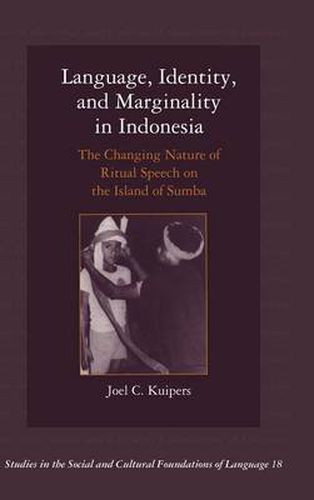Readings Newsletter
Become a Readings Member to make your shopping experience even easier.
Sign in or sign up for free!
You’re not far away from qualifying for FREE standard shipping within Australia
You’ve qualified for FREE standard shipping within Australia
The cart is loading…






Indonesia’s policy since independence has been to foster the national language. In some regions, local languages are still political rallying points, but their significance has diminished, and the rapid spread of Indonesian as the national language of political and religious authority has been described as the ‘miracle of the developing world’. Among the Weyewa, on the island of Sumba, this shift has displaced a once vibrant tradition of ritual poetic speech, which until recently was an important source of authority, tradition, and identity. But it has also given rise to new and hybrid forms of poetic expression. This first study to analyse language change in relation to political marginality argues that political coercion or cognitive process of ‘style reduction’ may partially explain what has happened, but equally important in language shift is the role of linguistic ideologies.
$9.00 standard shipping within Australia
FREE standard shipping within Australia for orders over $100.00
Express & International shipping calculated at checkout
Indonesia’s policy since independence has been to foster the national language. In some regions, local languages are still political rallying points, but their significance has diminished, and the rapid spread of Indonesian as the national language of political and religious authority has been described as the ‘miracle of the developing world’. Among the Weyewa, on the island of Sumba, this shift has displaced a once vibrant tradition of ritual poetic speech, which until recently was an important source of authority, tradition, and identity. But it has also given rise to new and hybrid forms of poetic expression. This first study to analyse language change in relation to political marginality argues that political coercion or cognitive process of ‘style reduction’ may partially explain what has happened, but equally important in language shift is the role of linguistic ideologies.